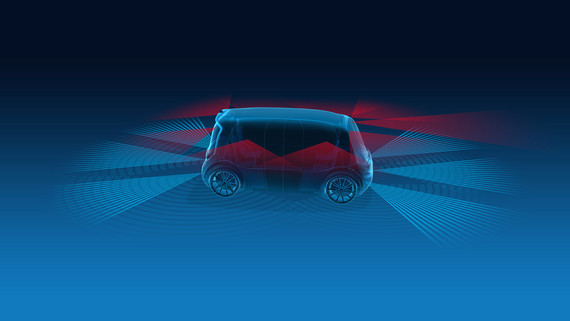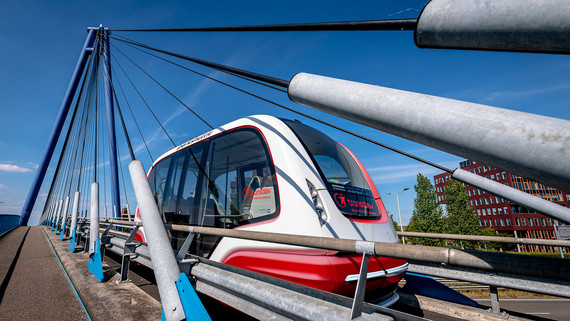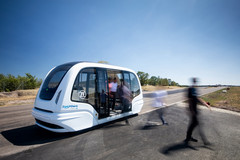In future, intelligently controlled and autonomously operating fleets of vehicles with shuttles and robo-taxis will make fewer individual cars necessary, especially in urban areas. Automated and autonomous driving will help make the traffic of the future safer, more efficient and more comfortable.
ZF offers comprehensive solutions and systems for this purpose – especially in the interaction of sensors, central computers, software and actuators. Lidar, radar and camera systems are combined for precise environmental sensing. The high-performance computer ZF ProAI processes these data, derives driving strategies from them and passes on commands to the actuators. Connectivity systems network the individual components in the vehicle as well as the overall system with its environment. Extensive test protocols also help ensure that ZF components and systems meet the high safety and quality standards of the automotive industry resulting in automotive grade components and systems.

With more than 100 million autonomously driven kilometers in real traffic, more than 14 million passengers transported and a reliability of more than 99 percent, the "Group Rapid Transit" Shuttle (GRT) used by the ZF subsidiary 2getthere is considered the most experienced autonomous transport system worldwide. It offers space for up to 22 passengers and is suitable for public transport as well as for use at airports or on parking and campus areas. With an 85 kW electric drive, a battery capacity of up to 37 kWh and a localization system with magnetic reference points, the shuttle can already reach a speed of up to 40 km/h and is therefore able to operate effectively in urban traffic.
This enables new mobility concepts that can be operated economically: As a result of the continuing shortage of drivers, the availability of public transport services is being threatened and passengers may have to wait longer in the future. These driver-operated solutions can be replaced by a user-friendly, efficient system with smaller, more agile autonomous shuttles that can offer alternative passenger transport. Autonomous systems can also help to connect rural and suburban areas with city centers. This contributes to creating equal mobility access in urban and rural areas.

In order to make autonomous transport systems effective in more complex traffic situations, ZF follows a multi-stage approach. In the first step, bi-directional shuttles were used on clearly defined routes. The reduced traffic complexity enabled an early market entry: Shuttles have been successfully operating in the Rivium Park in Rotterdam since 1997. Since 2010, ZF also offers on-demand shuttle solutions: For more individual journeys with up to four people, a "Private Rapid Transit" is available, which, for example, has been in operation for years in Masdar City (Dubai). A next milestone will be the first shuttle operation in mixed traffic in 2021 in Rotterdam and at Brussels Airport. In Germany, ZF is a partner in the project RABus. The goal is to deploy electric and autonomous bus shuttles in the cities of Mannheim and Friedrichshafen by the end of 2023.
ZF is using this more than 20 years of experience with automated and autonomous shuttle solutions, in the further development of higher complexity systems and their applications. In all steps, ZF focuses on full system solutions: The shuttles are offered with a fleet management system, charging infrastructure, service and maintenance packages and project planning.
This approach enables ZF to offer holistic automated or autonomous mobility solutions from a single source, which are designed to meet all requirements in terms of reliability, quality and, above all, safety.


